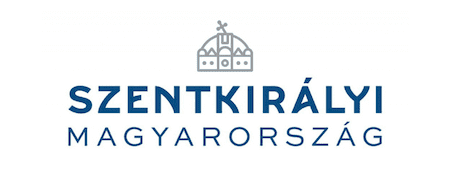Szentkirályi Magyarország restarts domestic production of Pepsi products in the spirit of sustainability
Pepsi production has been relaunched in Hungary through a joint investment by Szentkirályi Hungary and Mattoni 1873. The new, state-of-the-art facility is designed to minimize environmental impact: thanks to local production, an annual 1.5 million truck kilometers of transport and the associated emissions will be eliminated, while the shortening of supply chains further enhances positive environmental outcomes. The world-class bottling lines fill Pepsi soft drinks into rPET bottles made from plastics collected through the deposit return system, providing a model example of a circular economy in practice.
On June 2nd, Levente Balogh, Founder and Chairman of Szentkirályi Magyarország, announced that the vast majority of Pepsi products intended for the Hungarian market will be produced locally again, at Szentkirály. All this thanks to an HUF 11 billion joint investment with the Mattoni 1873 Group, led by Alessandro Pasquale. The newly inaugurated plant is equipped with cutting-edge technology, including a syrup production facility, water treatment units, and new bottling lines dedicated to serve the Hungarian market.

Pepsi production line
Pepsi’s “return to home” carries strong emotional significance: in 1971, when the first bottles of the iconic American soft drink rolled off the production line of the Capital Mineral Water and Ice Industry Company, Pepsi quickly became a symbol of Western lifestyle in socialist Hungary, offering a taste of freedom and the West with a capital W, like a “sip of America.” After the fall of communism, the brand continued its career as one of the favorite soft drinks of the younger generations. However, in 2014, due to economic pressures, the owner at the time decided to discontinue production in Hungary.
A new chapter in Pepsi’s domestic history was opened by the joint investment of Szentkirályi Magyarország and Mattoni in 1873, which, however, was realized in the spirit of a new business philosophy. Both companies have long been committed to environmental protection and sustainable development, as both Levente Balogh and Alessandro Pasquale have built their business success on natural mineral waters, products that are intertwined with respect for the values of nature. Both have long been advocates of sustainability -specifically, the circular economy model- and they implement their business developments in line with this philosophy. This was also the case when Pepsi production was restarted.

Press conference event, from left: Alessandro Pasquale, Kata Dobó and Levente Balogh
Bringing production back to Hungary significantly shortens the supply chain, marking an important step toward more sustainable operations. Localizing production, i.e., producing it in a location where raw materials and other resources necessary are available, means that goods reach consumers via the shortest possible route, thereby saving a great deal of environmental impact. In the case of Szentkirályi’s new plant, eliminating the need to import Pepsi drinks, transport is reduced by 1.5 million truck kilometers per year, which means that less harmful substances are released into the air.
The recycling of packaging materials is an important part of the circular economy. In one hand, it significantly reduces the need to produce new plastics, which lowers carbon dioxide emissions, in addition circularity of packaging prevents plastic bottles from polluting the environment by ending up in landfills or in nature. Hungary’s newly introduced deposit return system plays a crucial role in this, ensuring that packaging waste is properly collected and recycled, turning used PET bottles into valuable secondary raw material for soft drink production. The significance of the world-class production lines installed in Szentkirály lies in their ability to produce energy-efficient bottles containing recycled raw materials, known as rPET bottles. This completes the circular economy cycle, closes the loop as the PET bottles collected through the deposit return system will be turned back into PET bottles – filled with Pepsi soft drinks.

Preform before blow molding
These measures, together with advanced water and wastewater treatment systems installed at the plant of Szentkirály, ensure that Pepsi production operates with the smallest possible ecological footprint. The latest joint “project” of Levente Balogh and Alessandro Pasquale is intended as a working example of the circular economy, pointing the way forward for the future development of the Hungarian economy.



